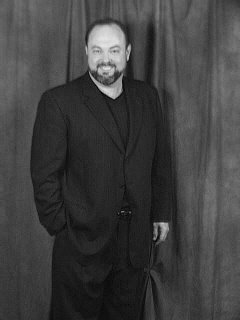George Barna has just released a new "Barna Update" about house churches as oppossed to conventional churches.
In this most recent study by Barna, he continues his crusade to highlight what he calls "new forms of the Church" that he suggests is the wave of the future (see his book Revelution: The New Church: Understand It).
Having had my "home church" phase, I'd like to suggest that this phenomenon occuring now is simply another symptom of the perpetually weak ecclesiology to be found in Evangelicalism. This ecclesiological weakness is a constant preassure on Evangelicalism to find the "new way" to do Church. This eternal "tail chasing" in an attempt to keep up with cultural and sociological shifts means that the ground is always shifting under the Evangelical's feet.
What motivates this perpetual search for the Church? I believe many of these sincere believers are looking for authentic Church. Every new "reform" movement in modern Evangelicalism had at its heart a desire for the Church. From the "Body Life" movement of the 60's and 70's, to the "Shepherding movement during the "Jesus Freak" years, to the ebb and flow of popularity of "house churches," seeking believers intuitively understand that there is something wrong with current church life.
This unease with the Church experience of many Evangelicals is primarily a theological problem.
A recent talk given by Terry Mattingly entitled "So What Do Converts Want, Anyway?" really gives language to what many Evangelicals are struggling with when it comes to church life. These concerns are really what sends a good number of converts to the Orthodox Church from Evangelicalism.
But at the heart of this longing is a theological issue: Where is the Church? Perhaps even a more elementary question is being asked: What is the Church?
These struggles may manifest themselves as a longing for intimacy, a search for genuine accountability, or even a desire for a sense of significance. Believers will seek to satisfy this sense of loss by trying "new forms of church." They will seek answers in estatic expereriences and religious fervor. They will change denominations, churches, even cities, trying to scratch the "itch" of the Church.
Some will settle on some form of expereince that at least "helps." Orthers will, tragically, conclude that there is no such thing as "Church" and will give up the search.
But the answer lies in a willingness to discover that which has always been true - the Church established by Christ, built on the foundation of the Apostles and the Prophets, and birthed at Pentecost is an observable, tracable, and avaiable reality today. It will require some effort and humility, but we can know where the Church is and what the Church is!
I'd like to write a few articles in the coming days concerning ecclesiology. The good news is we are not left to our own devices. We can learn about how the Church has known Herself through the centuries, and we can flee to the arms of this indispensible Mother.
As a wise father once said "You cannot have God as your Father without the Church as your Mother."
Why Not Use Ancient Rites?
6 years ago



2 comments:
Excellent assessment! And very familiar territory. Look forward to your future articles on the subject.
Thanks Dixie.
I am increasingly convinced that practically every issue we face has a theological root. And Church is no exception.
Feel free to critique any conclusions and offer insights. I usually learn as much as I share in writing on subjects like this.
B
Post a Comment